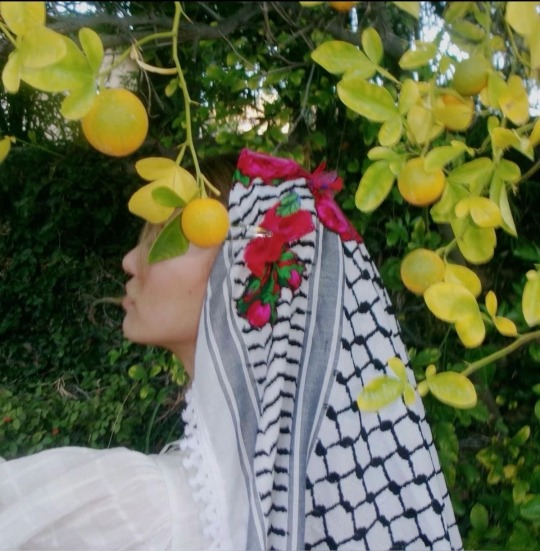#Levantin
Text

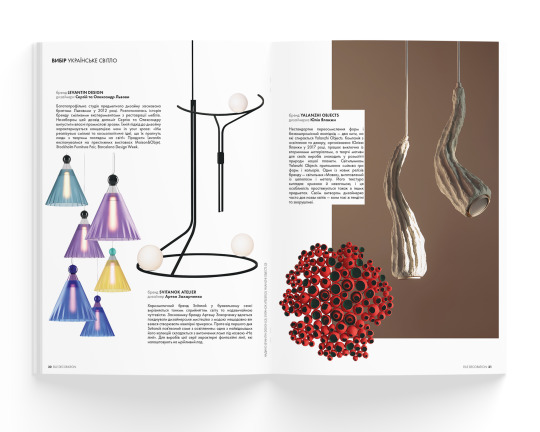
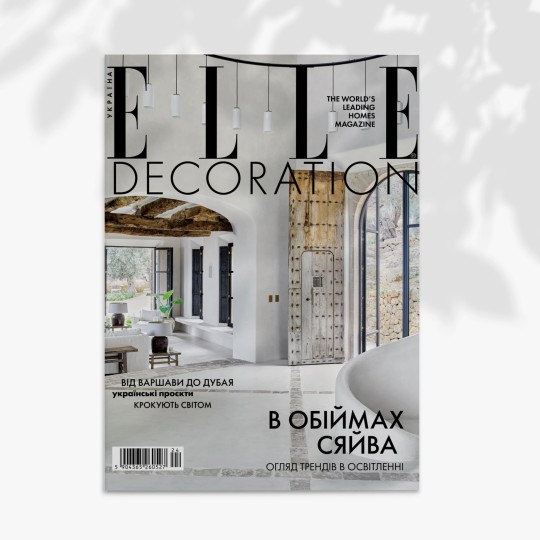

Sharing the autumn inspirational issue of @elledecoration_ua. It pays a lot of attention to lighting, and our Apparel lamp project is published in the section "Choice Ukrainian Lighting". Thank you for choosing! Hugs to the whole editorial team 😍
#levantin#levantindesign#wowinyourspace#interior#design#product design#designer#дизайн#интерьер#ukraine#україна#украина#light installation#light#lamp#elledecor#elledecoration#magazine#elle magazine#elle decor
25 notes
·
View notes
Text

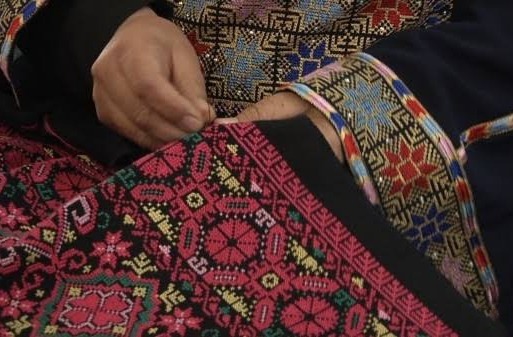

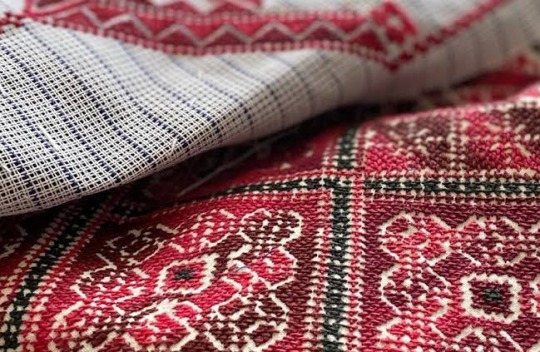
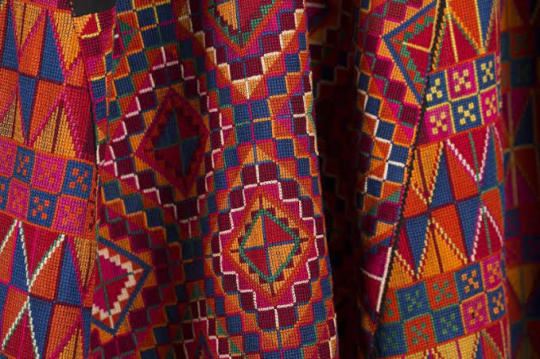

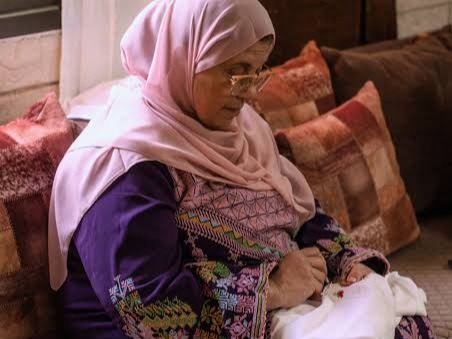

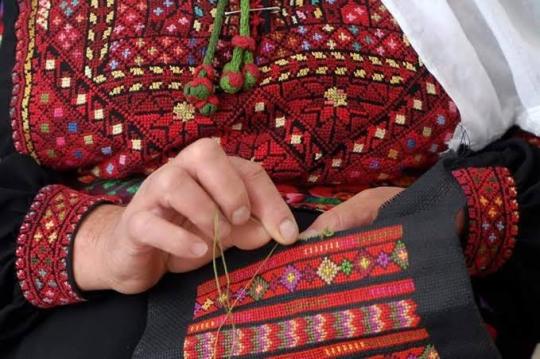
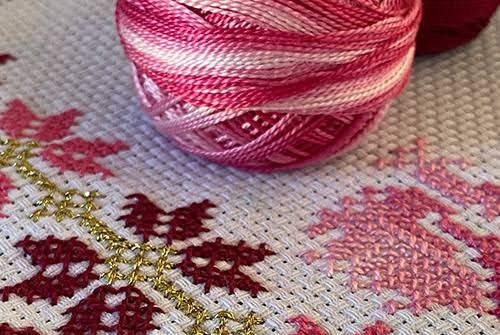
Tatreez (Arabic: تطريز) is a type of traditional Palestinian embroidery. Tatreez uses traditional cross-stitch embroidery and is practiced largely among women. The craft was originally practiced in rural areas of Palestine, but is now common across the Palestinian diaspora. Historically, each village in Palestine had their own tatreez patterns. The landscape was a major source of inspiration for the patterns and motifs, which speaks to the variation in style that was common to see among all of the different tatreez expressions that were particular to each Palestinian village.
After the violent displacement and dispossession of Palestinians in 1948, people were living together in refugee camps. The different styles of tatreez became less distinct and have continued to evolve with the diaspora. Following 1948, tatreez evolved to reflect the experiences of Palestinians. Palestinian women began to incorporate the Palestinian flag and its colors into their tatreez as a means of resistance to the occupation of Palestine. Consequently, tatreez became an expression of the identity, heritage and resistance of Palestinian women and their dedication to preserve their ancient culture.
1 / 2 / 3 / 4 / 5 / 6 / 7 / 8 / 9 / 10 / 11 | textile series
#textiles#ots#tatreez#palestine#palestinian art#palestinian culture#free palestine#from the river to the sea palestine will be free#embroidery#textile art#middle east#levant#levantine#fashion
13K notes
·
View notes
Text
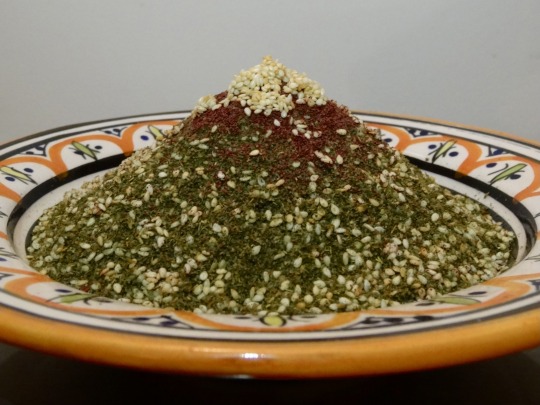
[ID: A decorative orange ceramic plate with a pyramid of green herbs and sesame seeds, topped with deep red sumac and more sesame seeds. End ID]
زعتر فلسطيني / Za'tar falastinia (Palestinian spice blend)
Za'tar (زَعْتَر; also transliterated "za'atar," "zaatar" and "zatar") is the name of a family of culinary herbs; it is also the name of a group of spice blends made by mixing these herbs with varying amounts of olive oil, sumac, salt, roasted sesame seeds, and other spices. Palestinian versions of za'tar often include caraway, aniseed, and roasted wheat alongside generous portions of sumac and sesame seeds. The resulting blend is bold, zesty, and aromatic, with a hint of floral sourness from the sumac, and notes of licorice and anise.
Za'tar is considered by Palestinians to have particular national, political, and personal importance, and exists as a symbol of both Israeli oppression and Palestinian home-making and resistance. Its major components, olive oil and wild thyme, are targeted by the settler state in large part due to their importance to ecology, identity, and trade in Palestine—settlers burn and raze Palestinian farmers' olive trees by the thousands each year. A 1977 Israeli law forbade the harvesting of wild herbs within its claimed borders, with violators of the law risking fines and confiscation, injury, and even death from shootings or land mines; in 2006, za'tar was further restricted, such that even its possession in the West Bank was met with confiscation and fines.
Despite the blanket ban on harvesting wild herbs (none of which are endangered), Arabs are the only ones to be charged and fined for the crime. Samir Naamnih calls the ban an attempt to "starve us out," given that foraging is a major source of food for many Palestinians, and that picking and selling herbs is often the sole form of income for impoverished families. Meanwhile, Israeli farmers have domesticated and farmed za'tar on expropriated Palestinian land, selling it (both the herb and the spice mixture) back to Palestinians, and later marketing it abroad as an "Israeli" blend; they thus profit from the ban on wild harvesting of the herb. This farming model, as well as the double standard regarding harvesting, refer back to an idea that Arabs are a primitive people unfit to own the land, because they did not cultivate or develop it as the settlers did (i.e., did not attempt to recreate a European landscape or European models of agriculture); colonizing and settling the land are cast as justified, and even righteous.
The importance of the ban on foraging goes beyond the economic. Raya Ziada, founder of an acroecology nonprofit based in Ramallah, noted in 2019 that "taking away access to [wild herbs] doesn't just debilitate our economy and compromise what we eat. It's symbolic." Za'tar serves variously as a symbol of Palestinians' connection to the land and to nature; of Israeli colonial dispossession and theft; of the Palestinian home ("It’s a sign of a Palestinian home that has za’tar in it"); and of resistance to the colonial regime, as many Palestinians have continued to forage herbs such as za'tar and akkoub in the decades since the 1977 ban. Resistance to oppression will continue as long as there is oppression.
Palestine Action has called for bail fund donations to aid in their storming, occupying, shutting down, and dismantling of factories and offices owned by Israeli arms manufacturer Elbit Systems. Also contact your representatives in the USA, UK, and Canada.
Ingredients:
Za'tar (Origanum syriacum), 250g once dried (about 4 cups packed)
250g (1 2/3 cup) sesame seeds
170g (3/4 cup) Levantine sumac berries, or ground sumac (Rhus coriaria)
100g (1/2 cup) wheat berries (optional)
2 Tbsp olive oil
1 Tbsp aniseed (optional)
1/2 Tbsp caraway seeds (optional)
Levantine wild thyme (also known as Bible hyssop, Syrian oregano, and Lebanese oregano) may be purchased dried online. You may also be able to find some dried at a halal grocery store, where it will be labelled "زعتر" (za'tar) and "thym," "thyme," or "oregano." Check to make sure that what you're buying is just the herb and not the prepared mixture, which is also called "زعتر." Also ensure that what you're buying is not a product of Israel.
If you don't have access to Levantine thyme, Greek or Turkish oregano are good substitutes.
Wheat berries are the wheat kernel that is ground to produce flour. They may be available sold as "wheat berries" at a speciality health foods store. They may be omitted, or replaced with pre-ground whole wheat flour.
Instructions:
1. Harvest wild thyme and remove the stems from the leaves. Wash the leaves in a large bowl of water and pat dry; leave in a single layer in the sun for four days or so, until brittle. Skip this step if using pre-dried herbs.
2. Crumble leaves by rubbing them between the palms of your hands until they are very fine. Pass through a sieve or flour sifter into a large bowl, re-crumbling any leaves that are too coarse to get through.
Crumbling between the hands is an older method. You may also use a blender or food processor to grind the leaves.
3. Mix the sifted thyme with a drizzle of olive oil and work it between your hands until incorporated.
4. Briefly toast sumac berries, caraway seeds, and aniseed in a dry skillet over medium heat, then grind them to a fine powder in a mortar and pestle or a spice mill.
5. Toast sesame seeds in a dry skillet over medium heat, stirring constantly, until deeply golden brown.
6. (Optional) In a dry skillet on medium-low, toast wheat berries, stirring constantly, until they are deeply golden brown. Grind to a fine powder in a spice mill. If using ground flour, toast on low, stirring constantly, until browned.

Some people in the Levant bring their wheat to a local mill to be ground after toasting, as it produces a finer and more consistent texture.
7. Mix all ingredients together and work between your hands to incorporate.
Store za'tar in an airtight jar at room temperature. Mix with olive oil and use as a dipping sauce with bread.
2K notes
·
View notes
Text
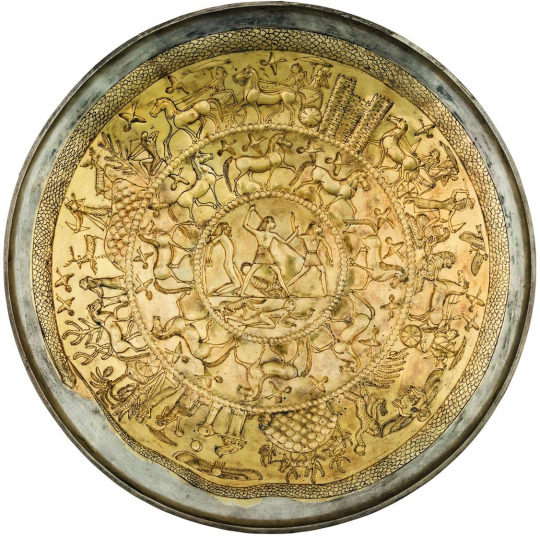
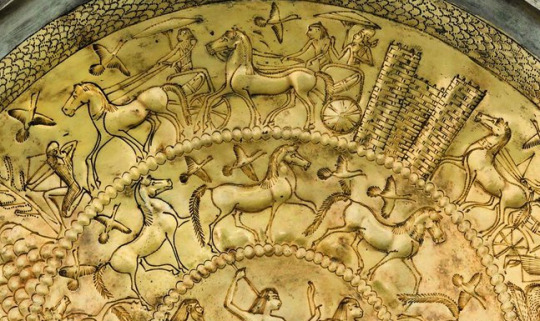
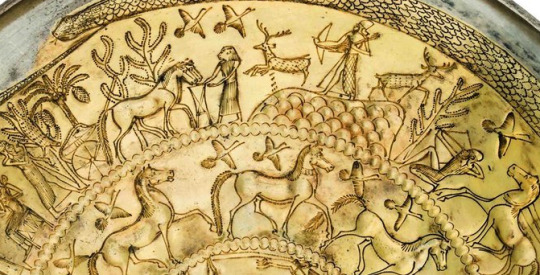
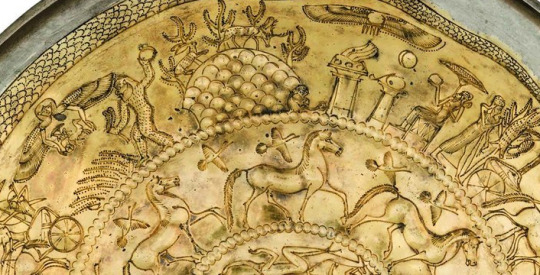
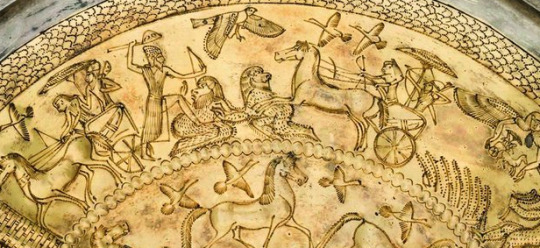
Phoenician Bowl with encircling Serpent
Bernardini Tomb (Palestrina, Italy)
c. 700 BCE
The National Etruscan Museum of Villa Giulia
Rome, Italy
#cyprus#rome#italy#egypt#egyptian gods#canaan#canaanite gods#phoenicia#phoenician gods#aram#aramean gods#syria#syrian gods#levantine gods#mesopotamia#mesopotamian gods#pagan gods#polytheism#archeology#magic#witchcraft#witchblr#paganblr#occult#uroboros#ouroboros#warfare#hunting#soldiers#birds
904 notes
·
View notes
Text
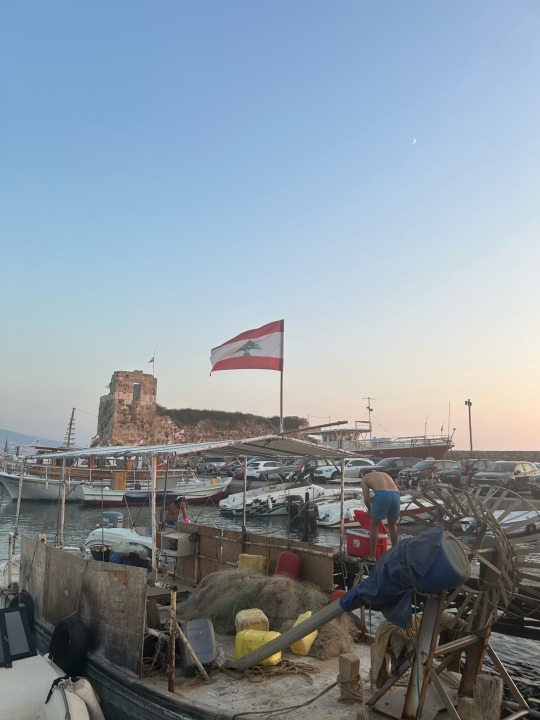

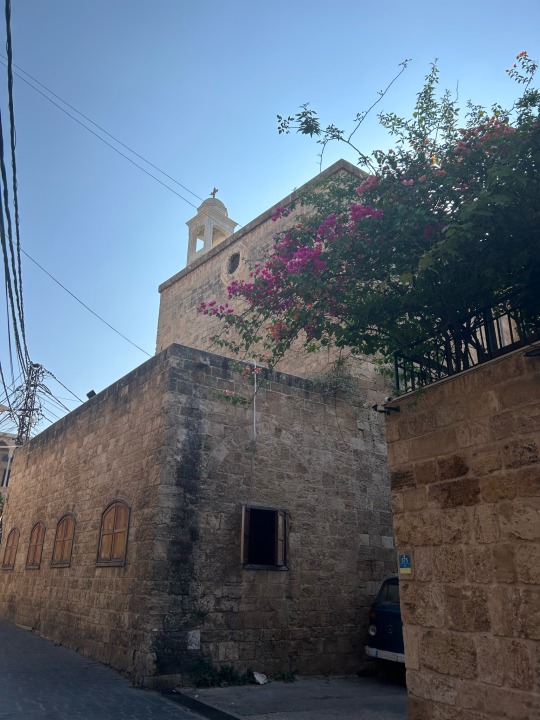
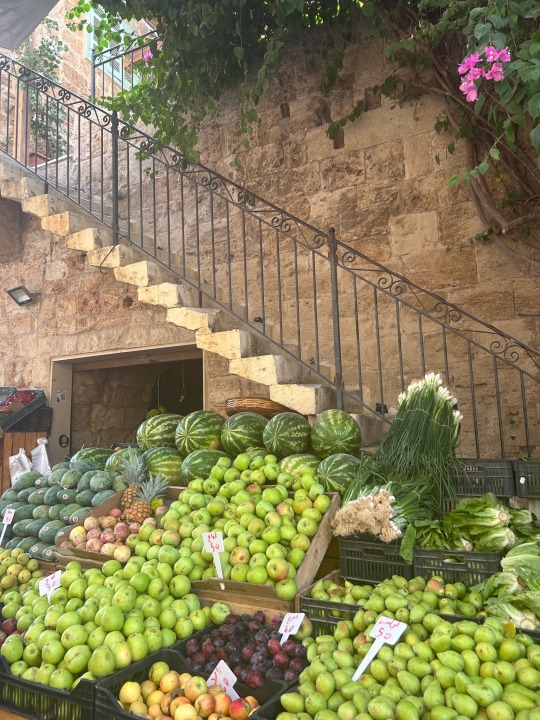
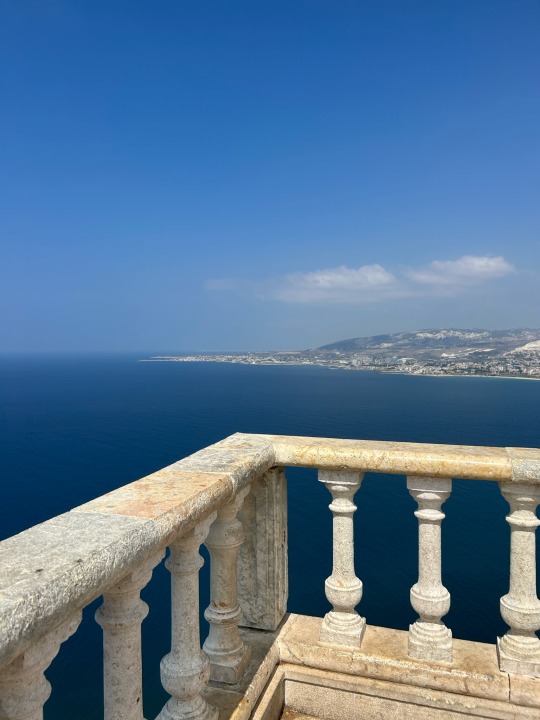

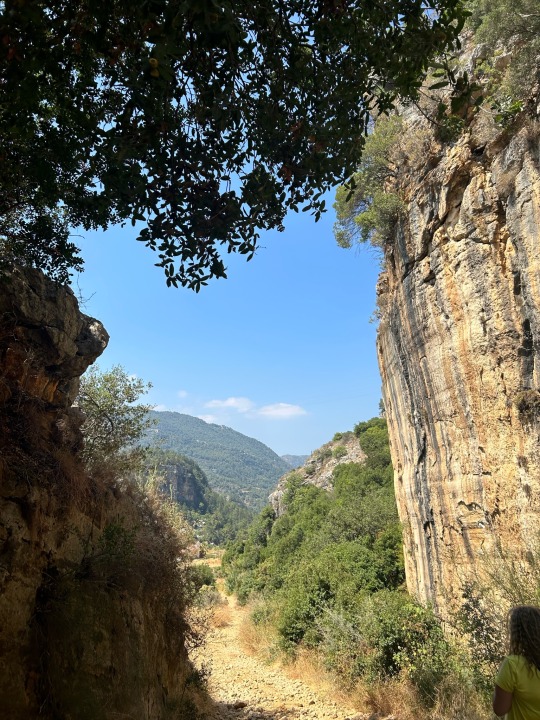
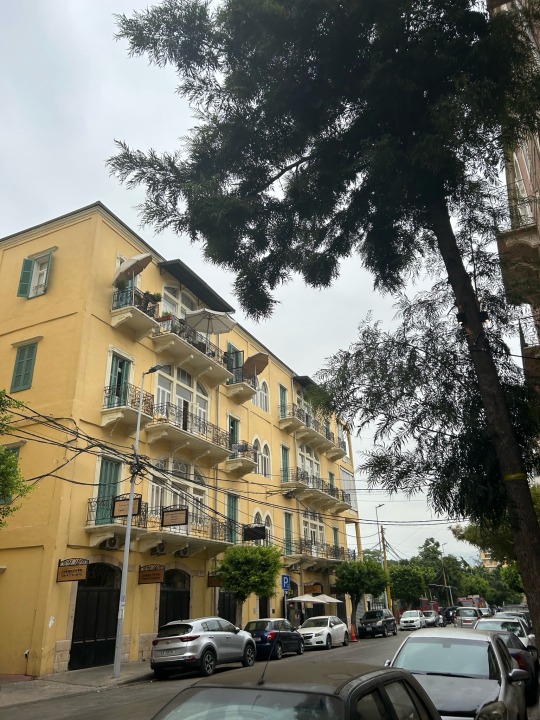
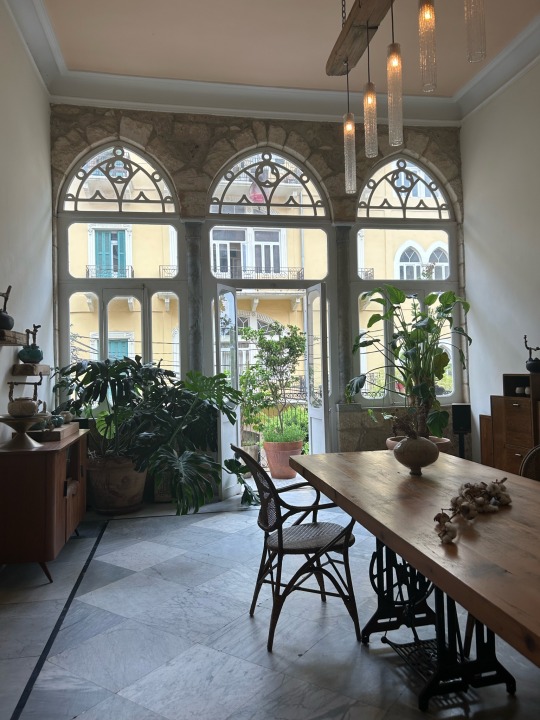
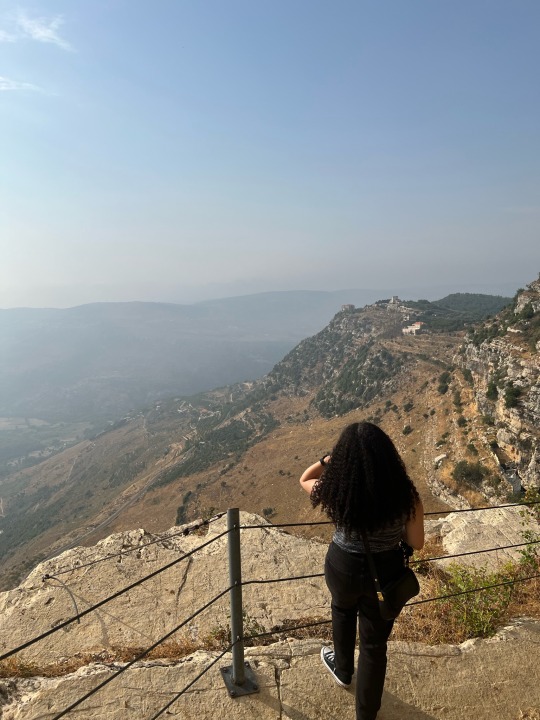
First two weeks in Lebanon (Jbeil, Batroun, Saydet el Nourieh, Kfermata, Beirut, Niha)
104 notes
·
View notes
Text
Consider the following scenario:
Desmond is sent to the past, to Altaїr’s time. Escept sod all the subterfuge, he steals a set of Assassin robes and just... Goes around doing Assassin things. Except, he never goes to Masyaf. That’s it that’s the only thing
Meanwhile, we have Malik, who has to deal with constant whiplash of not knowing if it’s Desmond or Altaїr who is in his bureau today. He doesn’t even know that there is a Desmond. From Malik’s point of view, Altaїr has finally snapped and the face he sometimes presents is actually tolerateable. Suspiciously so
(and also knows how to make a decent cup of tea, strangely enough)
Aaaand then we cut to a moment when both Desmond and Altaїr show up to Jerusalem bureau. And Malik thinks it’s *him* who finally snapped
...Given his personal preferences, it’s Altaїr whom Malik ends up kicking out of bureau. Much to Desmond’s amusement
After all - Desmond haven’t once claimed to be Altaїr
#Assassin's Creed#Assassin's Creed 1#Malik Al Sayf#Desmond Miles#Altaїr Ibn La'Ahad#Serving Time Travel as usual#Just every single Levantine assassin having no idea whom they are dealing with at the moment#And can we have protective Malik for a treat?#Keeping Desmond away because he doesn't want him to catch novice cooties or something
152 notes
·
View notes
Text
This is based on @zero-saito’s reply for this post
@teecupangel what if the day Desmond was born was a date that the sky turned green like that?
The sky turned green the day her son was born.
It lasted until he stopped crying.
Or so they say…
She had been too tired to care about such things, holding her son as he cried his heart out.
Her heart ached when he cried for so long.
As if lamenting his birth…
They said it was an auspicious sign.
She saw it as an omen of what was to come.
She had him because it was part of the contract she had with William Miles.
William Miles believed she would fall in love with him.
She doubted it the moment he agreed to her father’s proposal to ‘sell’ her off.
A child born of the Ibn-La'Ahad and the Auditore bloodline…
That was what her son was to her father.
To her husband?
He was just as fucked up as her. Unlike him, she never pretended to be normal.
He probably loved her son in his own way but he also saw him as the successor to such mighty bloodlines.
And this green sky that greeted her son’s birth.
It was only auspicious to them.
To her…
To her son…
It was a curse.
He hated the color green. He preferred the whites and reds that his mother usually wore.
He liked dark skies, of rain and storm…
He hated the word ‘auspicious’.
He hated his birth date.
But most of all…
He hated the Farm where the green sky appeared.
So he ran away.
And she stayed behind.
Screamed his name while standing at the opposite side of where she saw him run.
Swore she saw him run deep into the green forest, not towards the cliff that led to the blue waters that will carry him farther away from them faster than his legs could.
He ran away.
And she stayed.
Because she was not the mother he should have had.
But she was the distraction he needed that day.
.
When the entire sky was covered in the curtains of colors everyone found beautiful that early morning when the Solar Flare was supposed to hit the earth…
She saw the green curtains.
And did not think of it as auspicious at all.
She felt her phone vibrate but she didn’t need anyone to call her to know.
The world was saved.
But her son was cursed by this green sky once more.
She wondered if he knew why she wasn’t with him during his last moments.
Did he hate her?
That was fine.
She deserved it.
She was not a good mother.
But…
She was raised to be the perfect distraction by her own father.
So she took out her phone.
It was a message from William Miles.
[He’s dead.]
What an auspicious day for them all then.
They sacrificed her son for the world.
And she…
She never said goodbye.
No.
She doesn’t deserve a goodbye.
She closed the notification and pressed the volume up button on the side of her phone.
And watched as Abstergo’s Philadelphia branch explode.
It was unnecessary.
She had done her part pretending to be her son by appearing in CCTV the day prior but this…
This is her being petty.
What a bad mother she was.
William Miles was probably crying when he sent that message to her.
He probably managed to say something to her son before his death that would help him grieve.
But she had nothing.
She deserved nothing.
No tears fell from her eyes.
But her mouth moved.
And laughter burst forth.
Madness?
Hysteria?
She didn’t know anymore.
He hated the color green.
But he liked white.
Like the flash that appeared before an explosion.
He liked red.
Like the blood of the Templars that was caught up by the blast.
He liked dark skies.
Like the smoke that kissed the sky of the fire that was created afterwards.
She was a bad mother to her son.
But she was a good Assassin.
And perhaps…
That was all she needed to be to honor his memories.
#why yes#i am here once more with my#desmond's mother angst#i like to reiterate that the official encyclopedia does imply she loves bill#i just like to write her as being more of a levantine assassin#and it’s sorta a onesided love#assassin's creed#desmond miles#teecup writes/has a plot#fic idea: assassin's creed
40 notes
·
View notes
Text
it's literally so crazy i grew up with people who can easily be supermodels i didn't even mention my lebanese childhood friend she's so gorgeous
22 notes
·
View notes
Text

Introducing the solid ash wood bar stool that complements the Diox collection of the same name. We have designed it with an accent steel leg and two comfortable seating heights ❤
#Levantin#levantindesign#wowinyourspace#мебель#дизайн#интерьер#ukraine#ukrainian#украина#україна#design#interior#furniture#product design#home design#home decor#decoração#decor#decoration#ukrainiandesign
42 notes
·
View notes
Text
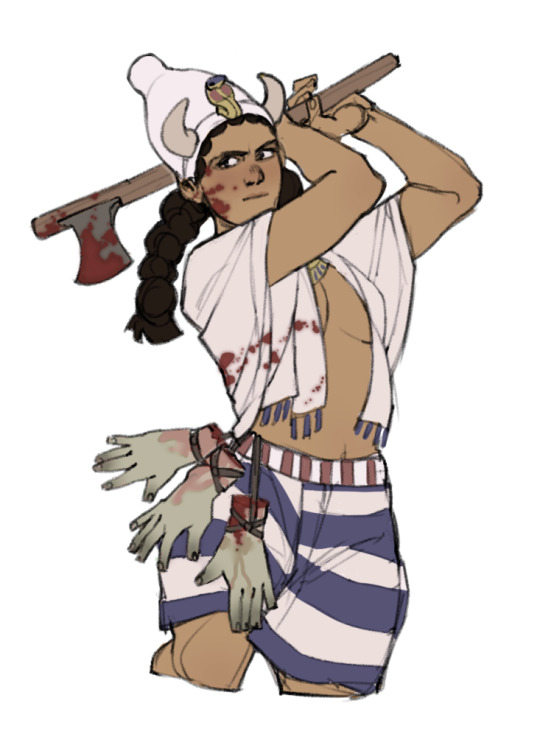
She seized divine Mot,
With a sword she split him,
With a sieve she winnowed him,
With fire she burnt him,
With mill-stones she ground him,
In a field she scattered him;
His flesh indeed the birds ate,
His limbs indeed the sparrows consumed.
Flesh cried out to flesh!
#anat is a non-binary icon#'anat‚ the victorious goddess‚ the woman who acts like a warrior‚ who wears a skirt like men and a sash like women'#ugaritic mythology#canaanite mythology#ancient egyptian mythology#ba'al cycle#levantine mythology#speaking of mythological figures‚ i... er... i seem to like them violent‚ huh#tw blood#tw light gore#art tag
108 notes
·
View notes
Text
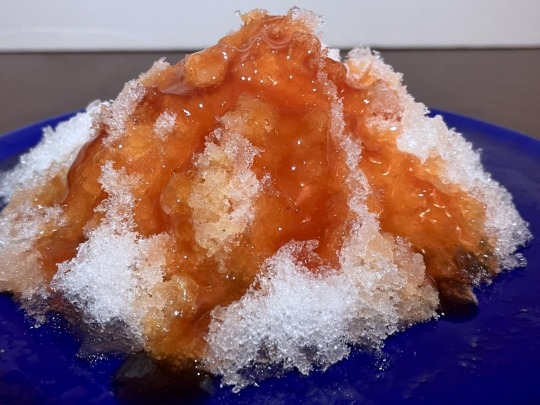
[ID: A pyramid of crystalline snow topped with deep orange syrup on a bright blue plate. End ID]
بقسمة / Buqsuma (Palestinian snow dessert)
بُقْسُمَة ("buqsuma"), or بوظة الشتاء ("būẓa shitā'", "winter ice cream"), is a dessert, possibly of Aramaic origin, eaten in cold and mountainous rural regions within Palestine, Syria, Jordan, Lebanon, and Turkey. It consists of freshly fallen snow topped with grape molasses (دبس العنب; "dibs al-'inab"), date molasses, pomegranate molasses, or storebought snow syrup (شراب الثلج ; "shrāb aṯ-ṯalj"). In Lebanon it may be topped with honey or orange syrup; and in Syria and Lebanon it may also be called سويق or سويقة ("sawīq" or "sawīqa").
Buqsuma is eaten for only a few days a year at the end of the snowy season in February. An old rhyme cautions against eating snow too early in the season:
أول تلجة دم
تانية تلجة سم
تالتة تلجة كل ولا تهتم
("ʔawwal tallaja damm
"tānya tallaja samm
"tālta tallaja kul wa lā tahtamm")
("The first snowfall is blood
"The second snowfall is poison
"The third snowfall, eat and don't worry")
Journalist Hussein Saqr speculates that the intention may be to allow the first snows to clear the air from summer and fall dust and other pollutants before the snow is safe to consume.
During these late winter days, eating and sharing buqsuma becomes a social ritual; guests are invited to share the dessert from a wide platter, or given individual bowls to dress to their taste with syrup, milk, and sugar. Children bring bowls of snow inside and eat buqsuma by the fire to warm up and recuperate from a day at play.
In Syria, buqsuma is prepared especially in the مُحافظة السويداء ("Muḥāfaẓat as-Suwaydā'"; Suwayda Governorate) in the south; in the طرْطوس ("Ṭarṭūs") and إدلب ("'Idlib") Governorates in the northeast; and along the جبال لبنان الشرقية ("Jibāl Lubnān ash-Sharqiyya"; Anti-Lebanon mountain range) from جبل الشيخ ("Jabal ash-Shaykh"; Mountain of the Sheikh / "Mount Hebron") to the جبال القلمون ("Jibāl al-Qalamūn"; Qalamoun Mountains) in Damascus Governorate.
In Palestine
Within Palestine, buqsuma is eaten only in الخليل ("Al-Khalīl" / "Hebron"), in the occupied West Bank. Palestinian food writer Reem Kassis points out that the regional specificity of the dish is due to the nature of the land: Al-Khalil is one of the few places in Palestine to receive snow.
Al-Khalil is also famous for its viticulture. "It is well known among Palestinians that Al-Khalil grows the best grapes," according to embroidery artist Wafa Ghnaim. Though grape vines have existed in Palestine since antiquity, Al-Khalil was one of the few locales to maintain them even during the Crusades, which caused the abandonment of olive and grape orchards elsewhere. As with oranges and pomegranates, an association between terroir, agriculture, and design reveals itself in Palestinian art: the قطف عنيب ("qiṭf 'inab"; "bunch of grapes") motif is common in Al-Khalil embroidery (تطريز; "taṭrīz"; often transliterated "tatreez").
Around 1700, Rabbi Gedalia mentions Al-Khalil's grapes as being particularly praiseworthy:
ויש בא"י הרבה פירות האילן, כגון ענבים, תאנים, ורמונים, זתים […]. והענבים הם גדולים ועגולים בירושלים. אבל בחברון תוב"ב הם מרובים וגדולים מן הענבים אשר בירושלים. וכשמוכרים את הענבים של חברון בירושלים משבחים אותם וצועקים: בואו ותקנו הענבים של חברון ! ומענב אחד מתמלא הפה ממשקה.
And there are in the land of Israel many tree fruits, such as grapes, figs, pomegranates, and olives [...]. The grapes are big and round in Jerusalem, but in Hebron they are more numerous and larger than the grapes in Jerusalem. And when vendors sell the grapes of Hebron in Jerusalem, they praise them and shout: Come and buy the grapes of Hebron! And one grape fills the mouth with nectar. (pp. 337-8)
Al-Khalil's viticulture is closely integrated with Palestinian food culture. Three distinct harvests yield different products. In the early spring, some of the leaves from the grape vines (وَرَق الدوالي; "waraq ad-dūwāli") will be harvested, when they are young, tender, and sour: good for stuffing with rice, meat, and vegetable fillings to make several popular Palestinian dishes.
Later in the spring, grape farmers harvest early, sour grapes (حصرم; "ḥiṣrim"; Levantine dialect "ḥuṣrum"). Some of these will be pressed to make عصي�� حصرم ("'aṣīr ḥuṣrum"; "juice of sour grapes"), a tart liquid that may be drunk plain, or used to give acidity to soups or salads. Others will be pickled in brine, or dried and ground to make a sour condiment called "سماق الحصرم" ("sumāq al-ḥuṣrum," "sour grape sumac").
The third harvest is in the late summer, when the grapes have fully ripened. Grape farmers in Al-Khalil may sell some of their summer harvests to Palestinian wineries and arak distilleries. Other ripe grapes will be pressed and their juice boiled down and dried to produce مَلبَن ("malban"), a Levantine fruit leather. And still more of this juice will be reduced into dibs al-'inab, which is then used to make buqsuma, added to tea as a sweetener, or mixed into tahina and scooped up with bread; it is especially popular during Ramadan as a quick way to boost energy.
Dibs al-'inab has been produced in Palestine for hundreds of years. Rabbi Gedalia describes grape molasses, which he calls "grape honey" ("דבש של ענבים"; "dvash shel 'anavim"):
שמבשלים את התירוש היוצא מן הענבים מיד כשסוחטין אותן, והוא אז מתוק מאוד כדבש ממש, וכ"כ מבשלים עד שנעשה עב כמו דבש.
They cook the must which is expressed from the grapes immediately after they are squeezed. It is then very sweet, like real [bee's] honey. Then they cook it again until it becomes thick as honey. (p. 338)
The recipe below is for buqsuma with Al-Khalil-style grape molasses.
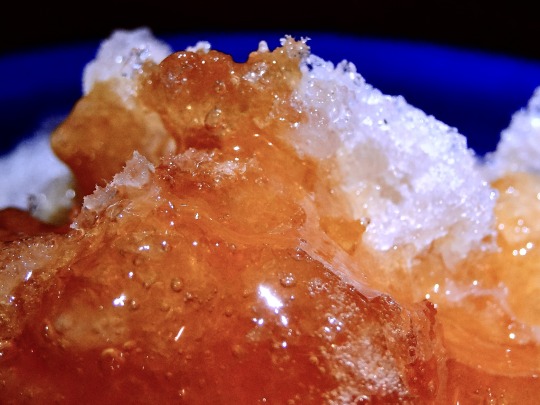
[ID: An extreme close-up on snow crystals topped with syrup in bright white and various shades of orange; bubbles are trapped throughout the syrup. End ID]
Viticulture Under Occupation
Today, the tending and harvesting of grapes in Al-Khalil take place under the shadow of Israeli settlements. Israel encourages the transfer of settler populations to settlements in Al-Khalil—including particularly fervent Israeli nationalist cells in the middle of Palestinian areas—with financial incentives and the creation of infrastructure that only settlers can move through freely. Palestinians are forbidden to drive in the "H2" area of Al-Khalil, which encompasses the central Old City and the الحرم الإبراهيمي ("Al-Ḥaram al-Ibrāhīmī"; Sanctuary of Abraham), and has been under Israeli military control since 1997. Israel conducts regular raids in the nominally Palestinian "H1" area, forcing people to leave their homes, destroying property, and committing arbitrary arrests and imprisonments.
The rapid expansion of settlements in the areas around Al-Khalil, such as those in what Israel calls גּוּשׁ עֶצְיוֹן (“Gush Etzion”; Etzion Bloc) and גִּבְעַת חַרְסִינָה ("Givat Harsina"), pushes Palestinians into ever-smaller and denser areas surrounded by settlements, rendering them still more vulnerable to Israeli control.
Alessandro Petti describes the strategy by which Israel fragments and isolates Palestinian areas, while allowing flow of movement between territories for non-Palestinians, as a distinction between free-flowing settler "archipelagoes" and Palestinian "enclaves." Infrastructure such as patrols, roadblocks, barriers, curfews, strip-searches and thorough searches of luggage—to which only Palestinians are subjected—make travel a time-consuming, nerve-wracking, and uncertain process: one that may end with being denied a permit, turned back from a border, or jailed for driving on a road which turns out to be prohibited to Palestinians. Because the rules are constantly changing, Palestinians may continue to avoid a road that is no longer actively barricaded out of fear that attempting to traverse it will lead to arrest.
Official Israeli military policy and settler violence alike cast a pall on Palestinian agricultural tradition and innovation. Farming and shepherding communities in the southern hills of Al-Khalil have been subjected to harassment, home demolition, and forced displacement at the hands of settlers and military bulldozers. Settlers burn grape and olive orchards and cut down mature grape vines. Palestinians are no longer allowed to access ancestral agricultural land that has been overtaken by colonists. Israeli military orders and settler harassment emptied Al Khalil's Old Souq of its vegetable and fruit markets in 2000; in 2019, plans were made to raze Palestinian shops and build a new settlement atop them. These plans would move forward in July of 2023.
Reprisal and collective punishment in the wake of militants' October 7th attacks on settlers have been felt in the West Bank and also impact agriculture in Al-Khalil. Grapes rot on the vine with farmers forbidden to tend them. Streets have been closed, shutting Palestinian farmers into their homes, while Palestinian shepherds in villages in the Al-Khalil area have been displaced and harassed with drones. Settler attacks and destruction of crops, already on a continual uptick for the previous several years, increased to a new high in 2023.
Olives, Grapes, and Resistance
Agriculture has been an important site of Palestinian resistance to settler incursion as, despite harassment, surveillence, and violence, Palestinians insist on staying on their land and in their homes. The Palestinian minority who inhabit the H2 area of Hebron, continuing to tend their olive trees, prevent the area from becoming settler-only and keep alive the hope that Al-Khalil will not become a "ghost town."
Various projects based in Al-Khalil combat settler technologies and strategies. Farmers in Al-Khalil launched the Cooperative Society for Agricultural Marketing and Processing in 1984 to increase grape farmers' self-sufficiency, reduce produce waste, and contribute to the production of Palestinian grape delicacies. The 2022 Counter Surveillance project, launched by Palestinian activist Issa Amro and artist Adam Broomberg, meets the Israeli security cameras stationed among Al-Khalil's olive groves with its own video feed, livestreamed online and to art museums.
Palestine's annual grape festival at حلحول ("Ḥalḥūl"), just north of Al-Khalil, took place in 2023 as scheduled; farmers displayed boxes of grapes of all colors and varieties, and sold dibs, malban, raisins, and jam. And Palestinian farmers and activists contribute to resurgences of indigenous seed varieties—such as the دابوقي ("dābūqi") grape, historically particularly prominent in Al-Khalil—in an effort to preserve Palestine's biodiversity and economic self-sufficiency.
Buy seeds from the Palestinian Heirloom Seed Library
Help Palestinian families evacuate Gaza
Contribute to an eSIM donation drive
Ingredients:
For the syrup (makes 2/3 cup):
2.5kg (5.5lb) tart green grapes, stems removed
For the base:
A large bowl of fresh snow
If it doesn't snow where you live, you can try making shaved ice using a snowcone machine; putting water in an ice-cream maker until you achieve a slushy texture; or running ice cubes through a blender.
Instructions:
For the syrup:
1. Remove grapes from their stems and rinse.
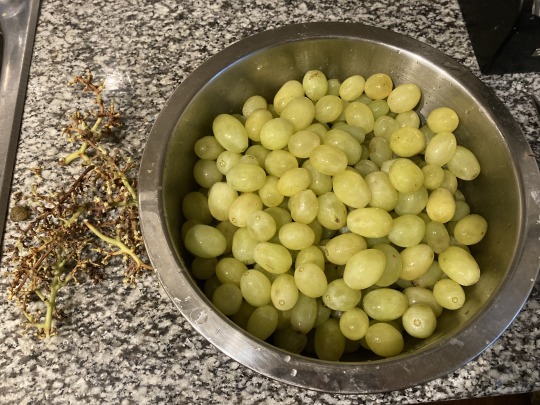
2. In a large bowl, mash and muddle grapes with your hands or a potato or bean masher; or pass grapes through a blender, food mill, or juicer.
3. Strain mashed grapes through a metal strainer, and then a cheesecloth (if you used a juicer, skip right to the cheesecloth). I had 4 cups (1 litre) of grape juice at this point.
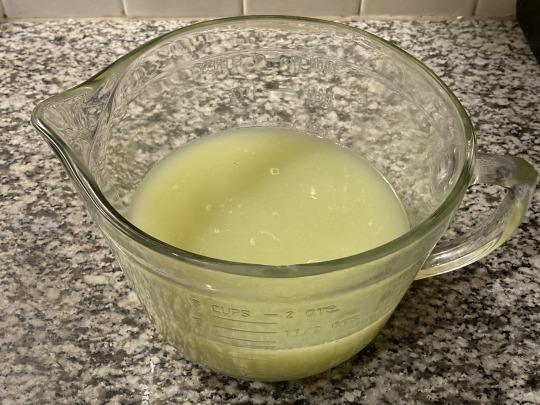
4. Pour grape juice into a thick-bottomed pot with a large diameter, preferably one with a light-colored bottom. Heat on medium to bring to a boil.
5. Continue simmering juice, skimming scum off the surface as it arises. Occasionally wipe down the edges of the pot with a wet pastry brush to prevent sugar from sticking and burning.
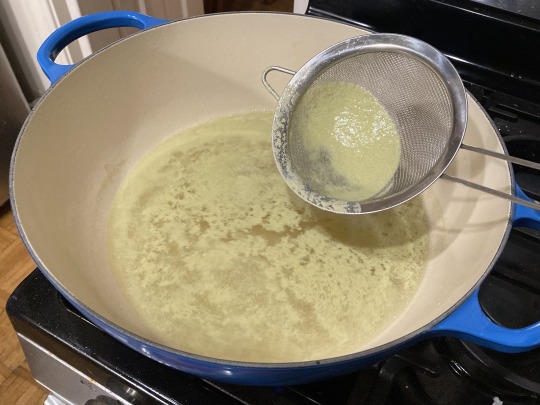
6. Eventually scum will stop rising. Continue to simmer until several shades darker in color and bubbling vigorously. Syrup should still pour freely, and just barely coat the back of a spoon. I had just over 2/3 cup (160 mL) at this point.

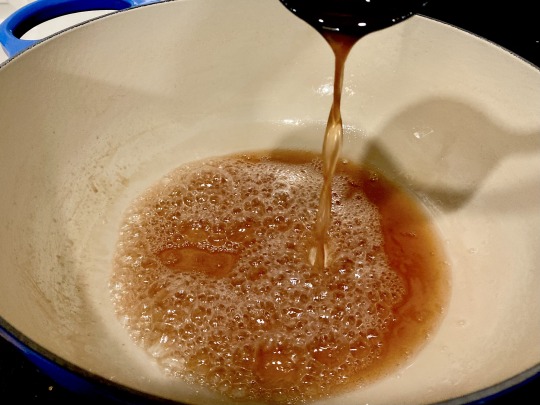
7. Remove from heat and allow to cool slightly before pouring into a jar. Allow to cool to room temperature before refrigerating. If you want to keep the syrup for multiple months or at room temperature, use a sterilized jar.
Compost the grape peels, or reserve to make fruit scrap vinegar.
For the dish:
1. Set a large bowl out several hours into a heavy snowfall; or collect just the top layer of freshly fallen snow after it has been snowing for several hours. Snow that falls earlier in a snowfall, or that has been sitting out for a longer period of time, is more likely to contain pollutants.
2. Compact the snow with a spoon to make the texture homogenous. Some people run it through a blender. Fill individual serving bowls with snow.
3. Pour cooled molasses to taste onto the snow and mix.
245 notes
·
View notes
Text

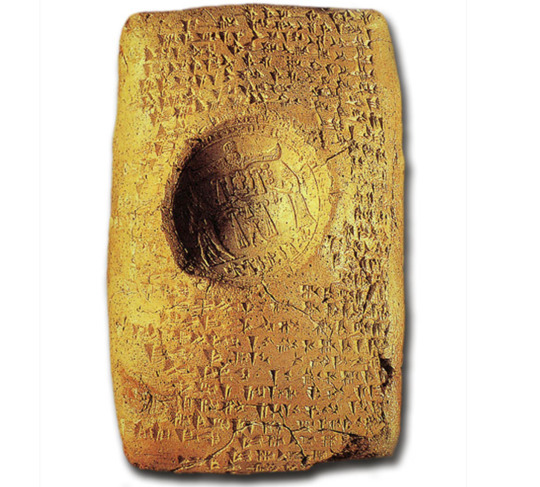
Divorce-Writ of King Ammistamru II
Ugarit, Syria
c. 1250 BCE
A tablet documenting the divorce of King Ammistamru II of Ugarit fromhattusa the daughter of the Amorite king Benteshina, sealed by the Hittite King Ammistamru. The king stands to the right, holding a spear, next to the "Weather God" who holds a club. They are both facing a long-robed female goddess (Arima, the chief Hittite sun-goddess) who stands at the left.
Source: Virtual Museum of Syria
#ugarit#hittite#baal#hadad#ugaritic costume#arima#sun goddess#huttusa#hittite gods#canaan#canaanite gods#phoenicia#phoenician gods#aram#aramean gods#syria#syrian gods#levantine gods#mesopotamia#mesopotamian gods#pagan gods#polytheism#archeology#magic#witchcraft#witchblr#paganblr#occult
266 notes
·
View notes
Text
Smash or Pass: Claudia Levantine

38 notes
·
View notes
Text
“Roasting” someone in Arabic
قَصْفُ جَبْهات
[Qaṣf jabhāt]
Explanation : the word جَبهة (plural : جبهات) in the military context means the frontlines and the word قصف means to strike or to hit with bombs or heavy weapons. The verb is قَصَفَ (or in levantine dialect : قَصِف)
This expression is used in different dialects to express the equivalent of “roasting someone”, i.e criticising them heavily and giving them a very strong argument that’s diffiicult to rebunk.
Note : the singular can be used, and the verb can also be modified according to the tense or speaker.
Example [with audio] : شُفتوا المُذِيعة كِيْف قَصْفَت جَبْهِتُه؟ | šuftū kīf elmuḏīʿa qaṣfat ǧabhito? | Did you see how the news reporter roasted him?
#arabic#dialect#dialects#levantine dialect#if I'm not mistaken I've also seen this a lot in#Saudi dialect#with minor phonetic variations
9 notes
·
View notes
Note
https://youtu.be/ifCWN5pJGIE?si=MvBHr36xNbHdsjYH
This kinda fits Desmonds mom in some way. Thoughts?
Here’s the embed video version for those who don’t wanna copy and paste the link:
youtube
I’m just imagining her hearing for the first time that her son, the son she hadn’t seen for nine years, could not even seen or talk to for one last time for the sake of both of their safety, was now dead.
Sacrificing his life to save the world.
Savior?
Messiah?
What used were those moniker to her dead son.
She wouldn’t be able to see him ever again.
She wouldn’t be able to touch his cheeks and take a good look of the man he had become in person.
She wouldn’t be able to smile and say “You’ve grown so much.”
She wouldn’t be able to ask…
“Were you happy these past years?”
“Was letting you go to be free worth the pain of not being by your side for nine long years?”
“It should have been you.”
She felt him freeze, the hands on her shoulders trembling ever so slightly.
“You should have died instead of our son!” She screamed as tears fell from her eyes.
He opened his mouth, most likely to call her name but stopped, letting out a gasp as her hands curled around his throat, squeezing him with the strength of an Assassin that have been in the field since she had been a teenager.
“You share the same blood as him! You’re a descendant of that cursed Auditore-Kenway line these beings haunt!” She shouted.
She could break his neck.
Snap it.
She’d done it before.
She’d kill so many people in the name of the Brotherhood before.
She was raised to be an Assassin.
She could just as easily-
She let out a frustrated scream as she threw him away, covering her eyes as bitter tears fell from her eyes.
He called out her name, his voice hoarse.
Was he grieving as well?
Did he loved their child as much as she did?
Who knows?
Who cares.
“Get out.” She lowered her hands as she ordered, the decades of forcing her emotions to shut down coming to the forefront, “Don’t ever show your face to me again, William Miles.”
Her expression turned to one of frigid nothingness.
It reminded William Miles of a recording of a memory of Altaïr Ibn-La'Ahad.
The face the legendary mentor had made when his desire to kill the man who killed his youngest son triumphed over his desire for peace and truth.
“The next time I see you, I will claw open your chest and rip your heart out.” She promised in an emotionless tone.
She watched him leave.
The man she loved and loathed in equal measure.
It should have been him.
No.
It should have been them.
They should have been the one to die in their son’s place.
They both failed him as parents.
And now…
All she had left was a Brotherhood barely afloat and the useless legacy of her blood.
After all…
Those who have the blood of the Ibn-La'Ahad were meant to lose their beloved child.
#i have no idea if this is what you wanted nonny#but this is what you’re gonna get#ngl i totally wrote this after reading the latest chapter of the orv webtoon with the kim family drama#that’s why this is heavily family drama-centric lol#here’s me again with my headcanon of desmond’s mom being raised like a levantine assassin#here’s my usual reminder that i think ubisoft was going for#william and his wife loving each other and having a sorta healthy relationship#but i am not kind enough to bill for that#also there’s a possibility that bill’s wife died during the attack on the farm in ac1#and that’s why he’s so cagey when desmond asked about her#ask and answer#assassin's creed#teecup writes/has a plot#fic idea: assassin's creed#do i tag desmond?#imma tag#william miles
26 notes
·
View notes
